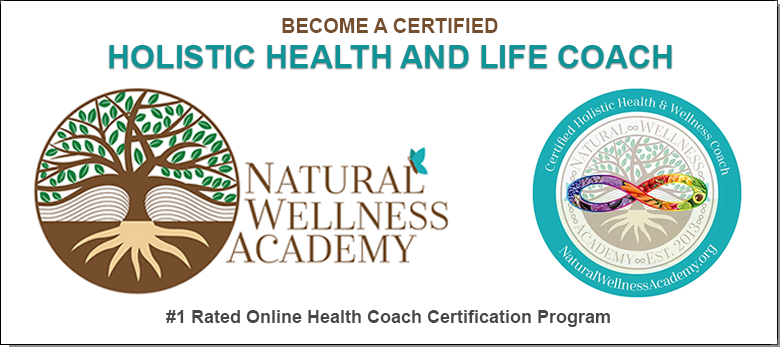
In today’s fast-paced world, achieving true well-being requires more than just addressing physical symptoms. Holistic health coaching offers a comprehensive approach that encompasses physical, mental, emotional, spiritual, and social health. Here we explore how holistic health coaching can unlock your potential and lead to profound personal transformation. Whether you’re seeking to enhance life satisfaction, develop sustainable health practices, or find balance in various aspects of life, holistic health coaching provides the guidance and support necessary for a fulfilling journey toward overall well-being.
Contents
- Introduction to Holistic Health and Coaching
- Understanding Holistic Health
- The Role of a Holistic Health Coach
- The Process of Holistic Health Coaching
- Techniques and Tools in Holistic Health Coaching
- References
Introduction to Holistic Health and Coaching
Holistic health coaching is a dynamic and integrative approach to well-being that looks at the individual as a whole. Rather than focusing on isolated symptoms or issues, holistic health coaching considers the interconnectedness of physical, mental, emotional, spiritual, and social health. This approach recognizes that true well-being can only be achieved when all aspects of a person’s life are balanced and harmonious.
Definition of Holistic Health Coaching
Holistic health coaching involves guiding individuals to achieve optimal health by addressing all dimensions of their lives. Coaches work with clients to identify their goals, challenges, and needs across various areas, including nutrition, physical activity, stress management, and emotional well-being. By offering personalized support and practical strategies, holistic health coaches empower individuals to make sustainable changes that promote long-term health and wellness.
Importance of Holistic Health in Personal Transformation
Personal transformation is a journey of significant change and growth that impacts all areas of one’s life. Holistic health is crucial in this process because it ensures that the transformation is comprehensive and balanced. Addressing only one aspect of health can lead to temporary or incomplete changes, while a holistic approach fosters lasting improvements. When individuals achieve balance in their physical, mental, emotional, spiritual, and social health, they experience a more profound and enduring transformation.
Understanding Holistic Health
Holistic health is an approach that considers the whole person rather than focusing on specific symptoms or ailments. It emphasizes the balance and interconnection between different aspects of health, leading to a more comprehensive and sustainable sense of well-being. Understanding holistic health involves recognizing its various components and the benefits they offer when integrated into a person’s lifestyle.
Components of Holistic Health
Holistic health encompasses multiple dimensions that contribute to overall well-being. Each component plays a vital role in maintaining balance and harmony within the individual [1].
Physical Health
Physical health involves the condition of the body and its ability to function efficiently. It includes aspects such as nutrition, exercise, sleep, and medical care. Maintaining physical health is fundamental to holistic well-being as it provides the foundation for other health dimensions.
Mental Health
Mental health pertains to cognitive functioning and psychological well-being. It involves managing stress, emotions, and thoughts effectively. Good mental health enables individuals to handle life’s challenges, make sound decisions, and enjoy a fulfilling life.
Emotional Health
Emotional health focuses on understanding and managing emotions. It involves recognizing feelings, expressing them appropriately, and coping with emotional challenges. Emotional health is crucial for forming healthy relationships and experiencing happiness.
Spiritual Health
Spiritual health involves a sense of purpose and meaning in life. It may include religious beliefs, personal values, and a connection to something greater than oneself. Spiritual health provides inner peace and resilience during difficult times.
Social Health
Social health is about building and maintaining healthy relationships. It includes effective communication, empathy, and a sense of belonging. Strong social connections contribute to emotional support and overall well-being.
Benefits of a Holistic Approach
Adopting a holistic approach to health offers numerous benefits that enhance overall well-being and life satisfaction. These benefits stem from addressing the interconnectedness of various health dimensions.
Comprehensive Well-Being
A holistic approach ensures that all aspects of health are considered, leading to a more complete sense of well-being. By addressing physical, mental, emotional, spiritual, and social health, individuals can achieve balance and harmony in their lives.
Enhanced Life Satisfaction
When all dimensions of health are in harmony, individuals experience greater life satisfaction. Holistic health promotes a sense of fulfillment and contentment by improving quality of life in multiple areas.
Sustainable Health Practices
Holistic health encourages sustainable practices that support long-term well-being. By integrating healthy habits into daily life, individuals can maintain their health and prevent issues from arising, leading to more enduring and positive outcomes.

The Role of a Holistic Health Coach
Holistic health coaches play a crucial role in guiding individuals toward comprehensive well-being. They provide support, resources, and motivation to help clients achieve their health goals across multiple dimensions. Understanding the role of a holistic health coach involves recognizing their responsibilities and the key skills that make them effective.
Definition and Responsibilities
Holistic health coaches are professionals who assist clients in achieving optimal health by addressing various aspects of their lives. They take a personalized approach, considering the unique needs and goals of each individual.
Guiding Clients Through Health Journeys
Holistic health coaches work closely with clients to understand their current health status and identify areas for improvement. They help clients set realistic and achievable goals, creating tailored plans that address physical, mental, emotional, spiritual, and social health. By providing continuous guidance and support, coaches ensure that clients stay on track and make progress toward their health objectives [2].
Providing Support and Accountability
One of the key responsibilities of a holistic health coach is to offer support and hold clients accountable. Coaches encourage clients to stay committed to their health plans, providing motivation and addressing any challenges that arise. They also celebrate clients’ successes, reinforcing positive behaviors and fostering a sense of accomplishment.
Key Skills and Qualities of Effective Coaches
Effective holistic health coaches possess a range of skills and qualities that enable them to guide clients successfully. These attributes help coaches build strong relationships with clients and provide valuable insights and support.
Empathy and Active Listening
Empathy is essential for understanding clients’ experiences and emotions. Holistic health coaches practice active listening, giving clients their full attention and understanding their perspectives. This helps build trust and rapport, creating a supportive and safe environment for clients to share their concerns and goals.
Knowledge of Holistic Practices
Holistic health coaches have a comprehensive understanding of various holistic practices and modalities. They are knowledgeable about nutrition, physical activity, mindfulness, and other techniques that contribute to overall well-being. This expertise allows them to provide informed recommendations and create effective health plans for their clients.
Strong Communication Skills
Clear and effective communication is crucial for conveying information and guidance to clients. Holistic health coaches use their communication skills to educate clients, explain complex concepts, and provide constructive feedback. They also encourage open dialogue, allowing clients to express their thoughts and feelings freely.
Ability to Motivate and Inspire
Motivation is a key factor in achieving health goals. Holistic health coaches inspire clients to stay committed and make positive changes in their lives. They use motivational techniques, set achievable milestones, and provide encouragement to keep clients focused and driven. By fostering a positive and empowering atmosphere, coaches help clients unlock their potential and achieve lasting transformation.
The Process of Holistic Health Coaching
The process of holistic health coaching is structured to provide personalized and ongoing support for individuals seeking to improve their overall well-being. This process involves several key stages, including initial assessment, goal setting, developing personalized health plans, and providing continuous support and adjustments.
Initial Assessment and Goal Setting
The first step in holistic health coaching is to conduct a thorough assessment of the client’s current health status and establish clear, achievable goals.
Comprehensive Health Evaluation
A comprehensive health evaluation is conducted to understand the client’s physical, mental, emotional, spiritual, and social health. This assessment may include questionnaires, interviews, and health screenings to gather detailed information about the client’s lifestyle, habits, and health history. The goal is to identify areas that need improvement and to understand the client’s unique needs and circumstances [3].
Identifying Personal Goals
Based on the initial assessment, the coach and client work together to set specific, measurable, achievable, relevant, and time-bound (SMART) goals. These goals provide a clear direction and focus for the coaching process. They can range from improving physical fitness and nutrition to enhancing mental well-being and emotional resilience.
Developing a Personalized Health Plan
Once the goals are set, the holistic health coach creates a personalized health plan tailored to the client’s needs and objectives. This plan integrates various holistic practices and strategies to support the client’s journey to better health.
Customized Strategies and Techniques
The health plan includes customized strategies and techniques that address the client’s specific goals and challenges. These may involve changes to diet and nutrition, exercise routines, stress management practices, and other holistic approaches. The plan is designed to be practical and manageable, ensuring that the client can incorporate these changes into their daily life.
Integrating Various Holistic Practices
The personalized health plan integrates a variety of holistic practices to support the client’s overall well-being. This may include mindfulness and meditation, physical activities like yoga or walking, nutritional guidance, and techniques for emotional and spiritual growth. By combining multiple approaches, the plan ensures a balanced and comprehensive path to health.
Ongoing Support and Adjustments
Holistic health coaching is an ongoing process that requires regular support and adjustments to ensure the client stays on track and continues to make progress.
Regular Check-Ins and Progress Tracking
The coach schedules regular check-ins with the client to monitor their progress and provide support. These sessions allow the coach to review the client’s achievements, address any challenges, and adjust the plan as needed. Progress tracking helps keep the client motivated and focused on their goals.
Adapting Plans to Changing Needs
As the client’s health and circumstances evolve, the holistic health coach adapts the health plan to meet their changing needs. This flexibility ensures that the plan remains relevant and effective throughout the coaching process. By making necessary adjustments, the coach helps the client maintain momentum and continue their journey toward optimal health [4].
Techniques and Tools in Holistic Health Coaching
Holistic health coaching employs a variety of techniques and tools to help individuals achieve comprehensive well-being. These methods address different dimensions of health, ensuring a balanced and integrated approach to personal growth and transformation. The following sections outline some of the most effective techniques and tools used in holistic health coaching.
Mindfulness and Meditation Practices
Mindfulness and meditation are powerful techniques that enhance mental clarity, reduce stress, and promote emotional balance. They are fundamental components of holistic health coaching, providing clients with tools to improve their mental and emotional well-being.
Stress Reduction Techniques
Stress reduction is a key goal of mindfulness and meditation practices. Techniques such as deep breathing, progressive muscle relaxation, and guided imagery help clients manage stress and anxiety. These practices encourage relaxation and mindfulness, allowing individuals to stay present and focused in their daily lives.
Enhancing Mental Clarity and Focus
Mindfulness and meditation also improve mental clarity and focus. Regular practice helps clients develop better concentration, decision-making skills, and cognitive function. By cultivating a calm and focused mind, individuals can navigate challenges more effectively and maintain mental sharpness.
Nutrition and Dietary Guidance
Nutrition plays a crucial role in holistic health. Coaches provide dietary guidance to help clients adopt balanced and wholesome eating habits that support their overall well-being.
Promoting Balanced and Wholesome Eating
A balanced diet is essential for maintaining physical health and energy levels. Holistic health coaches educate clients about nutritious food choices, portion control, and meal planning. They emphasize the importance of consuming a variety of whole foods, including fruits, vegetables, lean proteins, and healthy fats, to ensure adequate nutrient intake.
Addressing Nutritional Deficiencies
Nutritional deficiencies can impact overall health and well-being. Coaches work with clients to identify and address any deficiencies through dietary adjustments and supplementation if necessary. By ensuring clients receive the essential nutrients they need, coaches help them achieve optimal health and vitality.
Physical Activity and Movement
Physical activity is a vital component of holistic health. Coaches develop tailored exercise programs that suit clients’ fitness levels and preferences, promoting regular movement and physical well-being.
Tailored Exercise Programs
Holistic health coaches design customized exercise programs that align with clients’ goals and abilities. These programs may include activities such as walking, yoga, strength training, or cardiovascular workouts. The goal is to create a sustainable exercise routine that clients enjoy and can maintain over time.
Incorporating Movement into Daily Life
In addition to structured exercise programs, coaches encourage clients to incorporate more movement into their daily lives. This can include simple practices like taking the stairs, walking during breaks, or engaging in active hobbies. Regular movement helps improve overall fitness, energy levels, and physical health.
Emotional and Mental Health Strategies
Addressing emotional and mental health is essential for holistic well-being. Coaches use various strategies to help clients build emotional resilience and maintain mental health.
Cognitive Behavioral Techniques
Cognitive behavioral techniques (CBT) are effective for managing negative thought patterns and behaviors. Coaches use CBT methods to help clients identify and challenge unhelpful thoughts, develop healthier coping mechanisms, and improve their emotional responses. These techniques support clients in achieving better mental health and emotional stability.
Building Emotional Resilience
Emotional resilience is the ability to cope with stress and adversity. Holistic health coaches work with clients to develop skills such as emotional regulation, self-compassion, and positive thinking. Building emotional resilience helps clients navigate life’s challenges more effectively and maintain a positive outlook.
Spiritual Wellness Practices
Spiritual wellness is an important aspect of holistic health. Coaches incorporate practices that help clients explore their spiritual beliefs and find inner peace and purpose.
Exploring Spiritual Beliefs
Holistic health coaches encourage clients to explore and connect with their spiritual beliefs. This exploration can involve reflecting on personal values, engaging in spiritual practices, or seeking a deeper understanding of one’s purpose in life. Spiritual exploration fosters a sense of inner peace and fulfillment.
Practicing Gratitude and Mindfulness
Gratitude and mindfulness are powerful practices that enhance spiritual wellness. Coaches guide clients in developing a daily gratitude practice, which involves acknowledging and appreciating the positive aspects of their lives. Mindfulness practices, such as meditation and mindful living, help clients stay present and connected to their inner selves, promoting spiritual growth and well-being.
References
[1] What Is a Holistic Health Coach?
[2] What Is Holistic Health? Overview and Career Outcomes
[3] What Is Holistic Health Care, Anyway?
[4] What is Holistic Medicine?


This post beautifully explains the interconnectedness of physical, mental, emotional, spiritual, and social health. I’ve always believed in the power of a holistic approach, and this reinforces my commitment to it.
I’m intrigued by the idea of holistic health coaching. It seems like a comprehensive way to address all aspects of well-being. Has anyone here had personal experience with a holistic health coach?
The section on emotional health really resonated with me. Managing emotions and recognizing feelings is something I need to work on. Any tips on where to start?
I love how this post emphasizes the importance of spiritual health. Finding a sense of purpose has been a game-changer for me, and I appreciate seeing it highlighted here.
Holistic health coaching sounds like an excellent way to achieve sustainable health practices. I’ve struggled with maintaining a balanced diet and exercise routine, so this approach seems promising.
Great read! The breakdown of holistic health components was very informative. I’m particularly interested in learning more about how to integrate mindfulness into my daily routine.